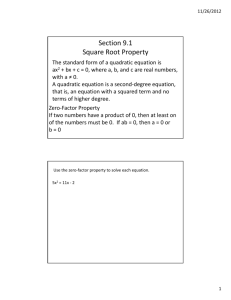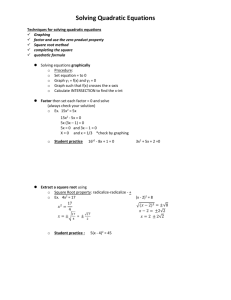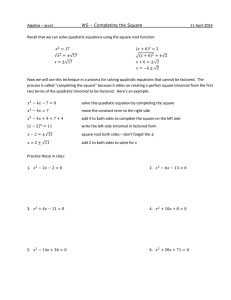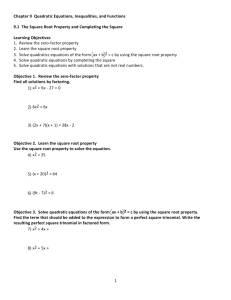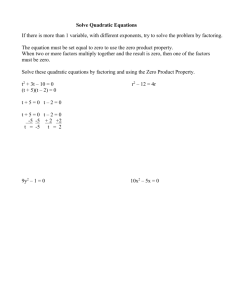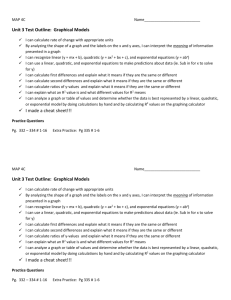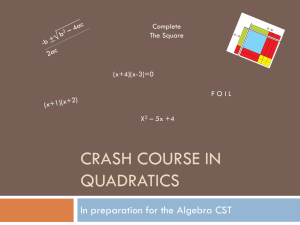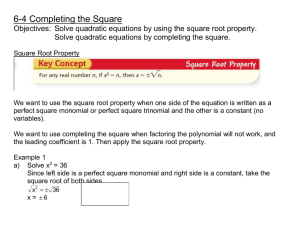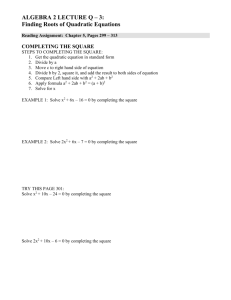Notes
advertisement
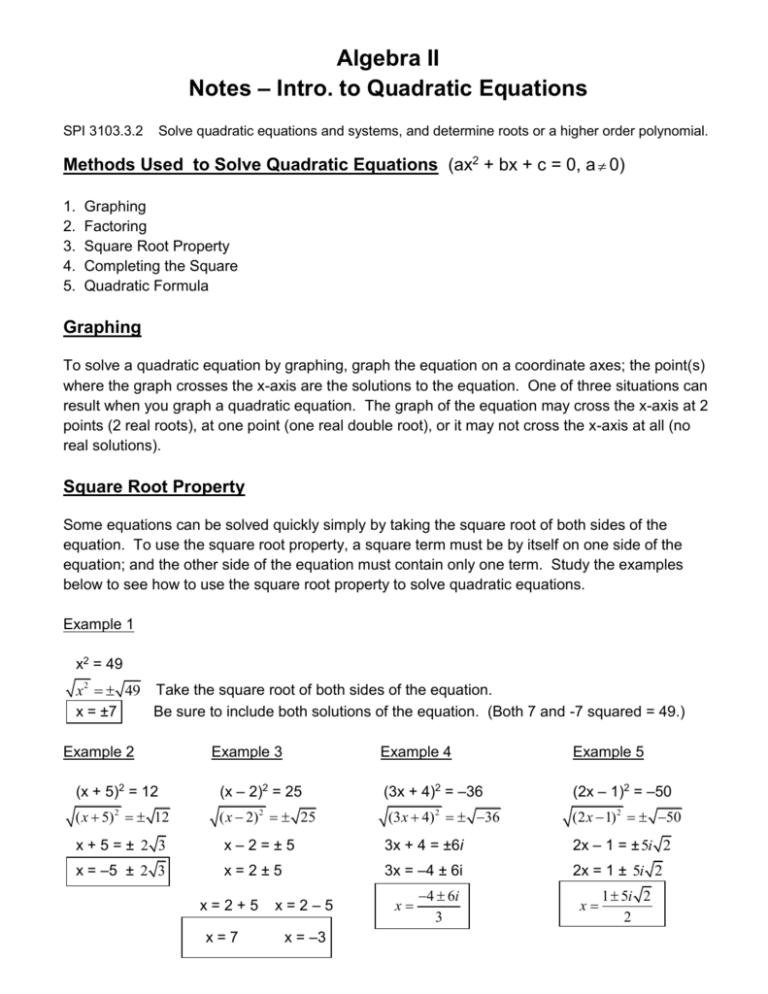
Algebra II Notes – Intro. to Quadratic Equations SPI 3103.3.2 Solve quadratic equations and systems, and determine roots or a higher order polynomial. Methods Used to Solve Quadratic Equations (ax2 + bx + c = 0, a 0) 1. 2. 3. 4. 5. Graphing Factoring Square Root Property Completing the Square Quadratic Formula Graphing To solve a quadratic equation by graphing, graph the equation on a coordinate axes; the point(s) where the graph crosses the x-axis are the solutions to the equation. One of three situations can result when you graph a quadratic equation. The graph of the equation may cross the x-axis at 2 points (2 real roots), at one point (one real double root), or it may not cross the x-axis at all (no real solutions). Square Root Property Some equations can be solved quickly simply by taking the square root of both sides of the equation. To use the square root property, a square term must be by itself on one side of the equation; and the other side of the equation must contain only one term. Study the examples below to see how to use the square root property to solve quadratic equations. Example 1 x2 = 49 x2 49 Take the square root of both sides of the equation. x = ±7 Be sure to include both solutions of the equation. (Both 7 and -7 squared = 49.) Example 2 Example 3 (x + 5)2 = 12 (x – 2)2 = 25 ( x 5) 2 12 ( x 2) 2 25 Example 4 Example 5 (3x + 4)2 = –36 (2x – 1)2 = –50 (3 x 4) 2 36 (2 x 1) 2 50 x+5=± 2 3 x–2=±5 3x + 4 = ±6i 2x – 1 = ± 5i 2 x = –5 ± 2 3 x=2±5 3x = –4 ± 6i 2x = 1 ± 5i 2 x=2+5 x=7 x=2–5 x = –3 x 4 6i 3 x 1 5i 2 2 Completing the Square If you can do the problems on the front of these notes, completing the square will be no problem for you. Just be sure to learn the steps listed below. After doing a few problems, they should become second nature. To complete these steps, remember that a quadratic equation is an equation that can be written in the form ax2 + bx + c = 0, a 0. Steps for Completing the Square 1. Write the equation in the form ax2 + bx = –c. 2. If a 1, divide each term in the equation by a. If a = 1, skip this step. 3. Complete the square A. Take half of b and square it. B. Add the result obtained in step 3A to BOTH sides of the equation. 4. Factor the left side of the equation as a trinomial square; combine like terms on the right side of the equation. 5. Solve the equation using the square root property. Example 1 x2 – 10x + 31 = 0 x2 – 10x = –31 2 x – 10x + 25 = –31 + 25 (x – 5)2 = –6 ( x 5) 2 i 6 Subtract 31 from both sides Complete the square (Step 3) Factor left as trinomial square; combine like terms on right. Solve by taking the square root of both sides of equation. x – 5 = i 6 x = 5 i 6 Example 2 Example 3 Example 4 x2 + 20x – 1 = 0 x2 + 20x =1 2 x + 20x + 100 = 1 + 100 (x + 10)2 = 101 x2 = 8x – 7 x2 – 8x = –7 2 x – 8x + 16 = –7 + 16 (x – 4)2 = 9 x2 – 5x + 3 = 0 x2 – 5x = –3 2 x – 5x + 25/4 = –3 + 25/4 (x – 5/2)2 = 13/4 ( x 10) 2 101 ( x 4) 2 9 x+ 10 = 101 x – 4 = ±3 x– 13 5 = 2 2 x = –10 101 x=4±3 x= 13 5 2 2 x=4+3 x=4–3 x=7 x=1 ( x 5 / 2)2 x= 5 13 2 13 4
